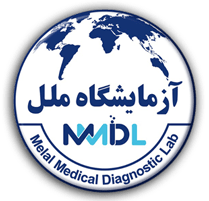Systemic lupus erythematosus (SLE) is a systemic autoimmune disorder, characterized by a wide spectrum of clinical manifestations that can affect many organs, including the skin, joints, the central nervous system and the kidneys. Rare, inherited, single-gene complement deficiencies are strongly related to SLE, but the disease is inherited during a polygenic manner in most patients. because of the heterogeneity of SLE, Diagnosis remains challenging through a combination of clinical and laboratory criteria.
Panel test
- Immunologic tests:
- Complement 3, 4, and CH50 – Low levels of complement in the blood are often linked with lupus.
- Antinuclear antibody (ANA) test – it’s an initial screen (not disease-specific); In patients with a positive ANA, more tests are performed for other antibodies that can confirm the diagnosis.
- Double-stranded DNA (dsDNA) – Presence of high antibody titers to native dsDNA is specific and diagnostic for SLE
- Extractable nuclear antigens:
- Smith (Sm) antibodies – highly specific for SLE but occur in only 30-35% of cases
- Ribonucleic protein (RNP) antibodies – not specific for SLE
- Anti-Sjögren’s syndrome antigen A (SSA, or Ro) and anti-Sjögren syndrome antigen B (SSB, or La) antibodies – not specific for SLE
- Histone antibodies – This test is useful for when drug-induced lupus is suspected
- Anti-ribosomal P (anti-P) – related to neurolupus but not useful in diagnosis of neuropsychiatric lupus
- Chromatin antibodies – Primary use – diagnose drug-induced lupus, 50-90% of SLE patients have these antibodies, Related to proteinuria, glomerulonephritis, and disease activity, It’s not specific for SLE, Could be found in Sjögren syndromeand antiphospholipid syndrome (APS)
- Biomarkers of lupus nephritis/disease severity:
- Anti-C1q antibodies – existence of these antibodies can predict risk for severe of disease and it’s related to renal disease.
- Consider the following testing to rule out other diseases:
- Antiphospholipidantibodies icluding lupus anticoagulant, anticardiolipin, and anti-beta-2 glycoprotein 1 IgG and IgM assays
- Cryoglobulin
- Neurolupus: CSF is tested for cell count, glucose, oligoclonal bands, culture and Oligoclonal bands, Interleukin 6, 8, 10.
- Collagen type VII antibody IgG – could be positive in bullous SLE
- Routine tests:
- Complete blood count. anemia commonly occurs in lupus. A low white blood cell or platelet count may occur in lupus as well.
- Erythrocyte sedimentation rate (ESR) and C-Reactive Protein (CRP). ESR is usually elevated in active SLE, whereas CRP may not be.
- liver transaminases.
References
- Fanouriakis A, Kostopoulou M, Alunno A, et al 2019 update of the EULAR recommendations for the management of systemic lupus erythematosus Annals of the Rheumatic Diseases Published Online First: 29 March 2019. doi: 10.1136/annrheumdis-2019-215089

